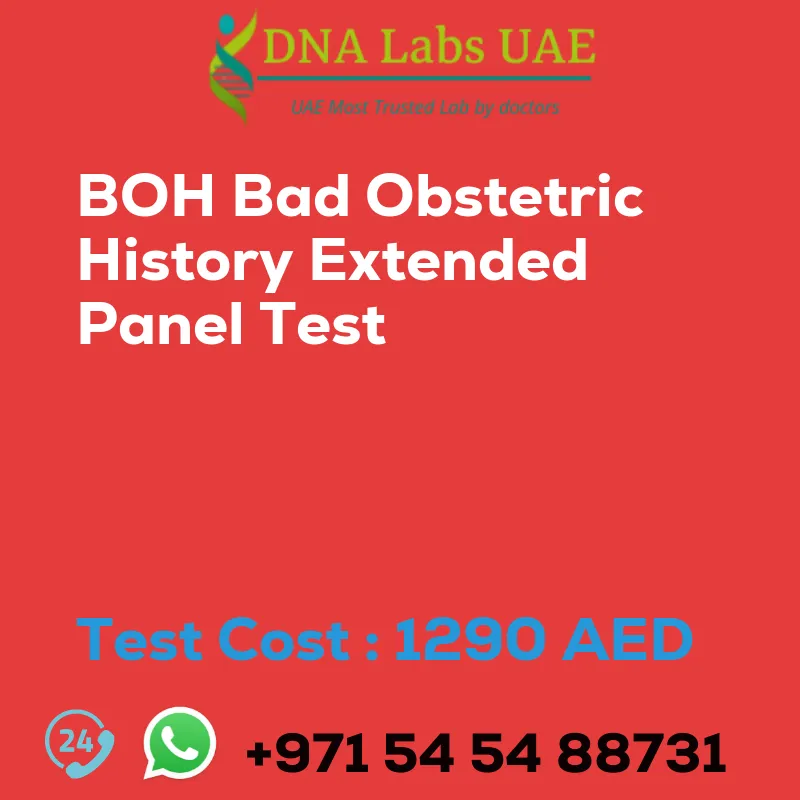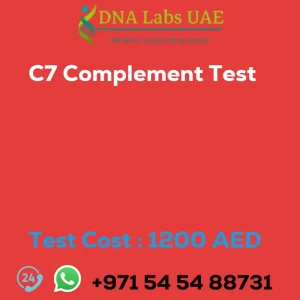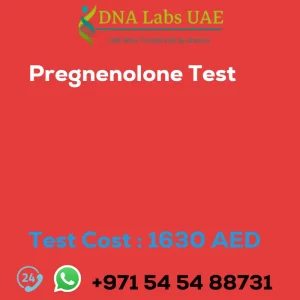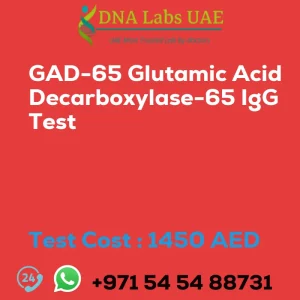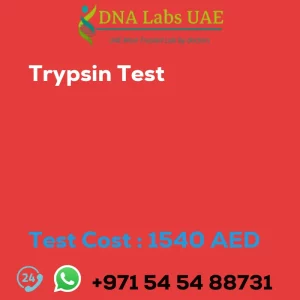BOH BAD OBSTETRIC HISTORY EXTENDED PANEL Test
Test Cost: AED 1290.0
Symptoms, Diagnosis, and Referring Details:
Test Name: BOH BAD OBSTETRIC HISTORY EXTENDED PANEL Test
Components:
- Phospholipidantibodies Panel, IgG & IgM
- Anti Nuclear antibody / Factor (ANA/ANF)
- TSHUltrasensitive
- Lupus anticoagulant by dRVVT
- Cardiolipin antibodies panel, IgA, IgG & IgM
Price: 1290.0 AED
Sample Condition:
- 4 mL (3 mL min.) serum from 1 SST. Ship refrigerated or frozen
- 4 mL (3 mL min.) Platelet Poor Plasma (PPP) from 3 Blue Top (Sodium Citrate) tubes. Mix thoroughly by inversion. Transport to Lab within 4 hours.
- If this is not possible, make PPP within 1 hour of collection as follows: Centrifuge sample at 3600 rpm for 15 min. & transfer supernatant to a clean plastic tube. Centrifuge this supernatant again at 3600 rpm for 15 mins. & finally transfer the supernatant (PPP) to 1 labelled, clean plastic screw capped vial. FREEZE IMMEDIATELY. Ship frozen. DO NOT THAW.
- Overnight fasting is preferred.
- Duly filled Coagulation Requisition Form (Form 15) is mandatory.
Report Delivery: Sample Daily by 3 pm; Report Next day
Method: CLIA, EIA, Electromechanical clot detection
Test Type: Bad Obstetric History
Doctor: Gynecologist
Test Department: IMMUNOPATHOLOGY
Pre Test Information:
- Overnight fasting is preferred.
- Duly filled Coagulation Requisition Form (Form 15) is mandatory.
- It is recommended that the patient discontinues Heparin for 1 day and Oral Anticoagulants for 7 days prior to sampling as these drugs may affect test results. Discontinuation should be with prior consent from the treating Physician.
Test Details
The BOH (Bad Obstetric History) Extended Panel test is a comprehensive screening tool used in obstetrics to evaluate the risk factors and potential causes of recurrent pregnancy loss or adverse pregnancy outcomes. This panel includes a series of tests that aim to identify any underlying genetic, hormonal, immunological, or anatomical factors that may contribute to these problems.
The specific tests included in the BOH Extended Panel can vary depending on the healthcare provider or laboratory conducting the test. However, some common components of this panel may include:
- Genetic testing: This may involve analyzing the chromosomes of both partners to identify any genetic abnormalities that could increase the risk of miscarriage or other pregnancy complications.
- Hormonal evaluation: This includes assessing levels of hormones such as progesterone, thyroid hormones, or prolactin, which can affect pregnancy outcomes.
- Thrombophilia screening: Thrombophilia refers to a tendency to develop blood clots. Testing for specific genetic mutations or markers associated with thrombophilia can help identify individuals at risk of developing blood clots during pregnancy, which can lead to adverse outcomes.
- Immunological testing: This involves evaluating the immune system’s response to pregnancy, including checking for the presence of specific antibodies or immune system dysregulation that may contribute to recurrent pregnancy loss.
- Anatomical assessment: This may include imaging tests such as hysterosalpingography or sonohysterography to evaluate the structure of the uterus and identify any abnormalities that could affect pregnancy.
The results of the BOH Extended Panel test can help guide healthcare providers in developing an appropriate management plan for individuals with a history of recurrent pregnancy loss or adverse obstetric outcomes. Treatment options may include lifestyle modifications, hormonal supplementation, surgical interventions, or specialized medical care during pregnancy.
It is important to note that the BOH Extended Panel test is typically recommended after a person has experienced two or more consecutive pregnancy losses or adverse obstetric outcomes. The test aims to identify any underlying factors that may be contributing to these issues, but it does not guarantee a specific treatment or outcome. The interpretation of test results should be done in consultation with a healthcare provider experienced in managing recurrent pregnancy loss or adverse obstetric history.
| Test Name | BOH BAD OBSTETRIC HISTORY EXTENDED PANEL Test |
|---|---|
| Components | *Phospholipidantibodies Panel, IgG & IgM*Anti Nuclear antibody / Factor (ANA/ANF)*TSHUltrasensitive*Lupus anticoagulant by dRVVT*Cardiolipin antibodies panel, IgA, IgG & IgM |
| Price | 1290.0 AED |
| Sample Condition | 4 mL (3 mL min.) serum from 1 SST. Ship refrigerated or frozen AND 4 mL (3 mL min.) Platelet Poor Plasma (PPP) from 3 Blue Top (Sodium Citrate) tubes. Mix thoroughly by inversion. Transport to Lab within 4 hours. If this is not possible, make PPP within 1 hour of collection as follows: Centrifuge sample at 3600 rpm for 15 min. & transfer supernatant to a clean plastic tube. Centrifuge this supernatant again at 3600 rpm for 15 mins. & finally transfer the supernatant (PPP) to 1 labelled, clean plastic screw capped vial. FREEZEIMMEDIATELY. Ship frozen. DO NOT THAW. Overnight fasting is preferred. Duly filled Coagulation Requisition Form (Form 15) is mandatory. |
| Report Delivery | Sample Daily by 3 pm; Report Next day |
| Method | CLIA, EIA, Electromechanical clot detection |
| Test type | Bad Obstetric History |
| Doctor | Gynecologist |
| Test Department: | IMMUNOPATHOLOGY |
| Pre Test Information | Overnight fasting is preferred. Duly filled Coagulation Requisition Form(Form 15) is mandatory. It is recommended that patient discontinues Heparin for 1 day and Oral Anticoagulants for 7 days prior to sampling as these drugs may affect test results. Discontinuation should be with prior consent from the treating Physician. |
| Test Details |
The BOH (Bad Obstetric History) Extended Panel test is a comprehensive screening tool used in obstetrics to evaluate the risk factors and potential causes of recurrent pregnancy loss or adverse pregnancy outcomes. This panel includes a series of tests that aim to identify any underlying genetic, hormonal, immunological, or anatomical factors that may contribute to these problems. The specific tests included in the BOH Extended Panel can vary depending on the healthcare provider or laboratory conducting the test. However, some common components of this panel may include: 1. Genetic testing: This may involve analyzing the chromosomes of both partners to identify any genetic abnormalities that could increase the risk of miscarriage or other pregnancy complications. 2. Hormonal evaluation: This includes assessing levels of hormones such as progesterone, thyroid hormones, or prolactin, which can affect pregnancy outcomes. 3. Thrombophilia screening: Thrombophilia refers to a tendency to develop blood clots. Testing for specific genetic mutations or markers associated with thrombophilia can help identify individuals at risk of developing blood clots during pregnancy, which can lead to adverse outcomes. 4. Immunological testing: This involves evaluating the immune system’s response to pregnancy, including checking for the presence of specific antibodies or immune system dysregulation that may contribute to recurrent pregnancy loss. 5. Anatomical assessment: This may include imaging tests such as hysterosalpingography or sonohysterography to evaluate the structure of the uterus and identify any abnormalities that could affect pregnancy. The results of the BOH Extended Panel test can help guide healthcare providers in developing an appropriate management plan for individuals with a history of recurrent pregnancy loss or adverse obstetric outcomes. Treatment options may include lifestyle modifications, hormonal supplementation, surgical interventions, or specialized medical care during pregnancy. It is important to note that the BOH Extended Panel test is typically recommended after a person has experienced two or more consecutive pregnancy losses or adverse obstetric outcomes. The test aims to identify any underlying factors that may be contributing to these issues, but it does not guarantee a specific treatment or outcome. The interpretation of test results should be done in consultation with a healthcare provider experienced in managing recurrent pregnancy loss or adverse obstetric history. |

